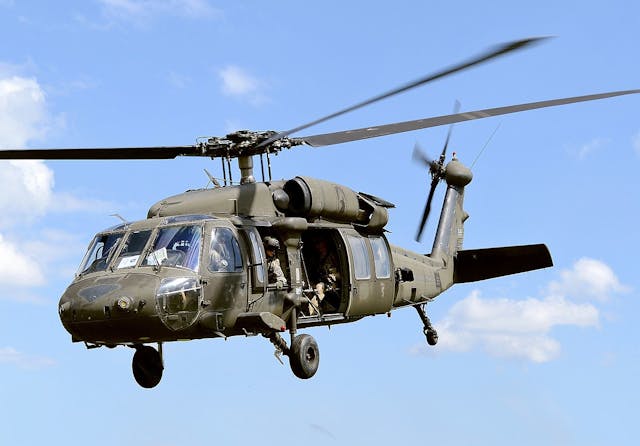UH 60 Helicopter Introduction: Whatever You Need to Know
UH 60 Helicopter Introduction: Whatever You Need to Know
Blog Article
The Effect of Lasting Practices on the Future of Aircraft Procedures and Emissions Reduction
As the aviation industry encounters boosting examination over its environmental influence, the adoption of sustainable practices emerges as a vital path towards future airplane procedures and exhausts reduction. Technologies in lasting aeronautics fuels and advancements in crossbreed propulsion technologies stand at the forefront of this change, encouraging considerable decreases in greenhouse gas discharges.

Introduction of Sustainable Practices
Lasting methods in airplane procedures include a series of techniques focused on reducing ecological influence while maintaining functional performance. These methods are necessary in the air travel sector's dedication to minimizing its carbon footprint and adhering to international environmental requirements. Key efforts consist of enhancing flight paths to minimize gas intake, boosting upkeep procedures to ensure airplane operate at peak efficiency, and applying sophisticated innovations such as winglets and lightweight materials that improve aerodynamics.

Educating and engaging staff on sustainability practices likewise play a vital function, cultivating a society of ecological responsibility within companies. On the whole, the combination of these sustainable techniques not only helps in reducing discharges however also enhances the long-lasting viability of the aviation market, guaranteeing it satisfies the demands of both customers and regulative bodies while adding to global sustainability objectives.
Cutting-edge Gas Alternatives
Various innovative gas alternatives are arising as crucial services to decrease the aeronautics sector's dependence on typical nonrenewable fuel sources. Among these options, Sustainable Air travel Gas (SAFs) have actually acquired significant attention as a result of their possible to reduce lifecycle greenhouse gas exhausts by as much as 80% contrasted to conventional jet fuels. SAFs are originated from various feedstocks, including waste oils, agricultural residues, and also algae, making them a flexible option for the market.
Another appealing option is hydrogen fuel, which, when utilized in gas cells, produces only water vapor as a result. This zero-emission prospective presents a considerable possibility for decarbonizing trip procedures, specifically for short-haul flights and local aircraft. Additionally, electrical propulsion systems are being discovered, leveraging battery modern technology to power airplane. While present battery capacity limits range and payload, ongoing innovations may soon make electric flights viable for details applications - uh 60.
Lastly, biofuels originated from biomass are being checked out, using a sustainable option that can be mixed with typical fuels. Jointly, these ingenious fuel alternatives represent a vital action toward achieving a lasting air travel environment, aligning with international discharges reduction targets and enhancing the sector's ecological stewardship.
Technological Improvements in Aeronautics

Exactly how can technological advancements improve the future of click this site air travel? Innovations such as hybrid and electric propulsion systems are at the center, appealing significant decreases in fuel intake and greenhouse gas discharges.
Additionally, the application of advanced products, such as light-weight compounds, adds to improved aerodynamics and fuel efficiency. The usage of artificial knowledge and artificial intelligence in trip operations maximizes course planning and minimizes gas burn by making it possible for real-time changes based click to investigate upon climate and web traffic conditions. Furthermore, the development of autonomous and from another location piloted airplane systems stands to reinvent freight and passenger transportation, potentially increasing performance while minimizing human mistake.
Furthermore, sustainable air travel technologies, consisting of advanced air traffic administration systems, can lower and simplify operations blockage, bring about lower exhausts during trip. These innovations jointly represent a standard change in aeronautics, assuring a future where sustainability and operational efficiency are linked, thus sustaining the market's dedication to reducing its environmental influence.

Governing Framework and Compliance
Taking into account the expanding focus on ecological stewardship within the aeronautics industry, the regulative framework regulating aircraft operations is developing to promote lasting methods. Regulative bodies, such as the International Civil Air Travel Organization (ICAO) and different nationwide aviation authorities, are presenting strict standards targeted at reducing emissions and enhancing operational performance.
These guidelines commonly consist of the fostering of Lasting Aviation Gas (SAF), which has actually been acknowledged as a vital part in achieving reduced carbon footprints. Additionally, conformity with these guidelines requires airline companies to execute operational methods and innovative modern technologies, such as maximized flight paths and boosted air web traffic management, to minimize fuel consumption.
In addition, the enforcement of exhausts trading plans and carbon offsetting efforts is becoming significantly common, compelling airline companies to check and report their exhausts precisely. Non-compliance can cause significant charges, therefore pressing operators to prioritize sustainability in their business versions.
Eventually, the progressing regulative landscape not only drives technology and investment in eco-friendly technologies however likewise fosters a culture of accountability within the air travel sector. As these frameworks continue to establish, the concentrate on lasting methods will be important to accomplishing the field's lasting ecological goals.
Future Fads in Airplane Procedures
As the aeronautics market adapts to a progressively strict regulatory atmosphere, future fads in airplane operations are readied to concentrate on innovative solutions that even more improve sustainability and efficiency - uh 60. Key advancements will likely consist of the fostering of innovative air traffic monitoring systems, which make use of real-time data and synthetic intelligence to optimize flight paths, decreasing gas usage and discharges
Another substantial trend is the raised integration of sustainable air travel fuels (SAFs) These options to conventional jet fuel, originated from renewable sources, can considerably decrease lifecycle greenhouse gas exhausts. The market's commitment to SAFs will likely speed up as airlines work together with fuel manufacturers to ensure schedule and cost-effectiveness.
Additionally, the press towards electrification and crossbreed propulsion systems is acquiring momentum. Emerging aircraft designs will include these technologies, providing quieter and extra efficient procedures, specifically for short-haul flights.
Verdict
Finally, the integration of lasting click to find out more methods in aircraft operations holds significant possibility for emissions decrease and enhanced efficiency. The fostering of lasting air travel gas, paired with improvements in electric and hybrid propulsion systems, is important for minimizing lifecycle greenhouse gas emissions. Additionally, enhancing trip courses and welcoming ingenious modern technologies add to a quieter and much more eco pleasant air travel industry. Collectively, these initiatives align with international sustainability objectives and lead the way for a greener future in aeronautics.
Developments in lasting air travel gas and developments in hybrid propulsion innovations stand at the forefront of this transformation, encouraging significant reductions in greenhouse gas discharges.Numerous innovative fuel options are emerging as pivotal remedies to lower the aviation market's reliance on standard fossil gas - uh 60. Among these choices, Lasting Aeronautics Gas (SAFs) have acquired considerable attention due to their possible to decrease lifecycle greenhouse gas emissions by up to 80% contrasted to standard jet fuels.Another significant fad is the raised combination of sustainable aeronautics fuels (SAFs) The fostering of lasting aviation fuels, coupled with advancements in electric and hybrid propulsion systems, is essential for lessening lifecycle greenhouse gas exhausts
Report this page